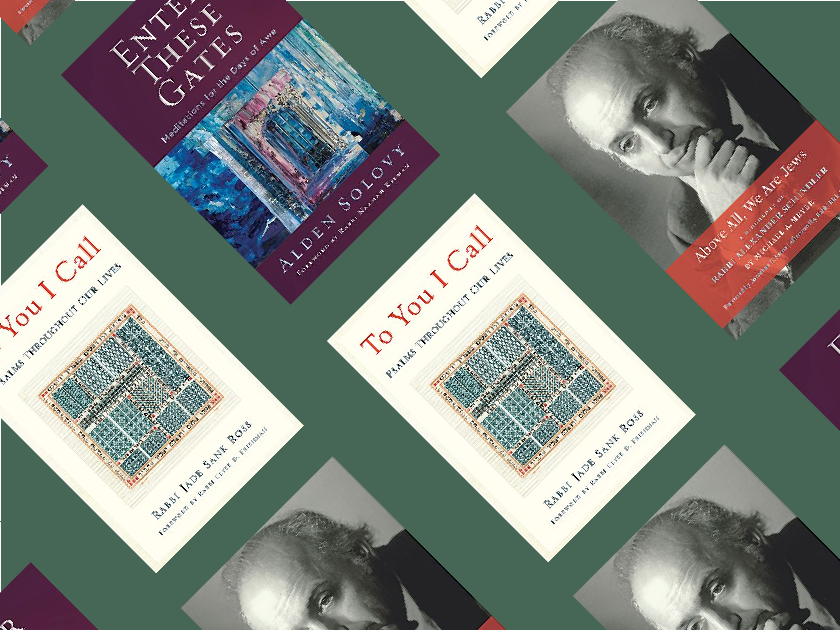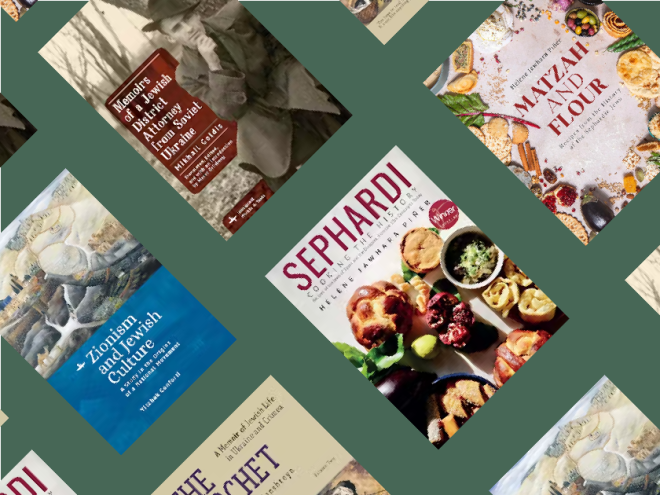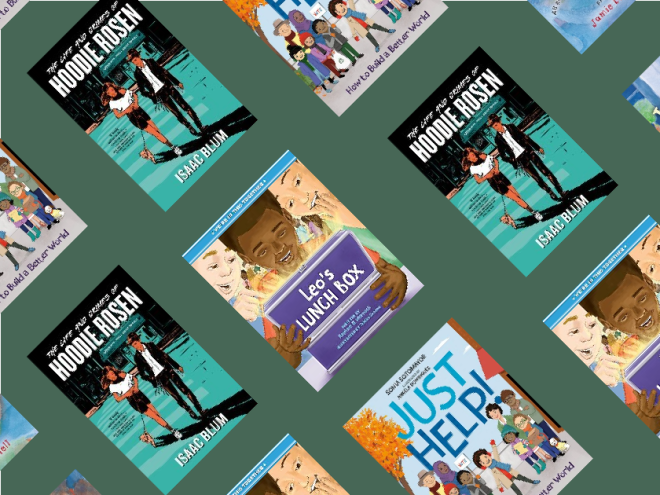
What’s the scoop on publishing? What Jewish books are agents, editors, and publishers especially excited for us to read? JBC’s series BookWatch is here to answer these frequently asked questions. Each month, a publishing insider writes an email to introduce themselves, give us a behind-the-scenes look at their work, and tell us about forthcoming Jewish books they can’t wait to usher into the world.
This piece originally appeared in a JBC email on Friday, December 13. Sign up here for our emails to be one of the first to know the latest Jewish literary news!
Over the years, I’ve learned that chance and contingency play a key role in a career, and in life. I’ve spent much of my career in Jewish publishing, yet my college freshman self would be surprised by my job at what is both a press and a Jewish organization. Publishing is often called “the accidental profession”; few, if any, kids proclaim that they want to be an editor when they grow up. But in retrospect, I feel like I ended up in the right place.
People go into publishing because they love reading — it’s a privilege to usher books into the world and collaborate with brilliant, creative authors. Yet I’ve found that the learning and variety that come with a publishing career are equally important. While the publishing process may be similar each time, every book has unique subject matter, so a publisher is continually learning about new topics. Unexpectedly, publishing also feels like a service profession. There’s a great deal of satisfaction that comes with helping authors bring their voices into print. A skilled publisher isn’t just a critical editor and a hound about deadlines — though those are essential — but also a coach, cheerleader, and friend.
Publishing has traditionally been an apprenticeship profession. For me, this meant starting with an internship at SUNY Press, a scholarly publisher, which led to freelance copyediting and an editorial assistant position after college. Because I had a Jewish education, it made sense for me to take on their Jewish studies list when I became an acquisitions editor. Publishing the work of scholars in various fields taught me about such fascinating subjects as the biblical pseudepigrapha, the psychoanalyst Sabina Spielrein, and the poet Avrom Sutzkever.
Five years ago, I made a move into Jewish religious publishing to become the director of CCAR Press. A division of the Central Conference of American Rabbis, we’re the primary publisher for Reform Judaism. CCAR Press is best known for our liturgical publications — if you’ve ever been to a Reform synagogue, you’ve likely used our Mishkan T’filah siddur or Mishkan HaNefesh machzor. But there’s a lot more variety to what we publish. Our catalog includes collections on topics like Judaism and the environment, theology, and Jewish intellectual history. We have a number of contemporary biblical commentaries, several of which are focused on social justice. And our list encompasses poetry, rabbinic responsa (answers to questions about Jewish law), and Israeli books in translation.
A look at our recent and forthcoming tiles gives a sense of this wide range. At the end of 5784, CCAR Press published Enter These Gates: Meditations of the Days of Awe. The author, Alden Solovy, bridges the divide between liturgy and poetry in his writing, which is deeply rooted in Jewish texts. An American who made aliyah to Jerusalem, he was in the midst of the writing process when October 7 happened. Spending time in bomb shelters and picking vegetables in the Gaza envelope took priority over the manuscript. Yet Alden was determined to finish the project in time for Rosh Hashanah. The resulting book is profoundly affected by the war; a yearning for hope and peace is threaded through its pages.
Last month we released To You I Call: Psalms Throughout Our Lives, a volume of psalms for different life moments collected by Rabbi Jade Sank Ross. Some of the psalms are for occasions when one would expect to recite t’hillim, like a birthday, anniversary, or losing a loved one. Others are more surprising — psalms for paying off a debt, coming out of the closet, or choosing to end a pregnancy. Rabbi Sank Ross’s thoughtful kavanot (intentions) show how these ancient words can still provide comfort for Jews today.
And next month, we are looking forward to publishing Above All, We Are Jews: A Biography of Rabbi Alexander Schindler by the historian Michael A. Meyer. As president of the Union of American Hebrew Congregations (today’s Union for Reform Judaism) from 1973 to 1996, Rabbi Schindler was one of the most influential Jewish leaders of the late twentieth century. In fact, Meyer argues that he was the last figure who could plausibly claim to speak for American Jews as a whole. Never afraid to be controversial, Rabbi Schindler argued for recognizing patrilineal descent, institutionalized outreach to interfaith families and non-Jews, and championed LGBTQ rights well before these stances became mainstream. His tireless advocacy for the Jewish state while maintaining the diaspora’s right to criticize Israeli leadership is particularly relevant to liberal Jews today. Based on extensive archival research and interviews, the book paints a definitive portrait of a leader whose actions continue to reverberate even though he might no longer be a household name.
Wishing you a joyous Hanukkah and happy reading!
Rafael Chaiken is the director of CCAR Press, a department of the Central Conference of American Rabbis and the primary publisher for the Reform Movement. He was previously the editor for Jewish studies, film studies, and philosophy at the State University of New York Press. Books he has published have been winners or finalists for the National Jewish Book Awards, Jordan Schnitzer Book Awards, Foreword Indies Book of the Year, Independent Publisher Book Awards, and Canadian Jewish Literary Awards. His book reviews have appeared in the Journal of Electronic Publishing and Publishing Research Quarterly. He holds a BA from Brown University and an MA from the University at Albany, both in history, and lives in New York City.



